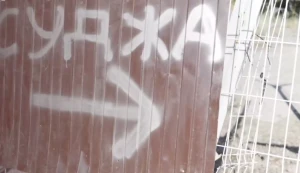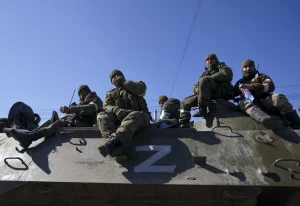
I suspect that there is Russian trace there - MEP Lange on blockade of Ukrainian border
The situation on the border with Poland is illegal, as there are clear European laws that regulate trade both within the EU and with third countries. There are also many doubts that the protests on the border are related to agricultural products and there is probably a Russian trace in these actions
Bernd Lange, Chairman of the Conference of Chairmen of the European Parliament Committees and the European Parliament Committee on International Trade, said this during a briefing at the Media Center, Espreso reports.
"To be honest, I have doubts that all the protests initiated by farmers are related to agricultural products. I have suspicions that there is a Russian trace there. And we need to be very careful about linking these actions to Ukrainian agricultural producers. In addition, we are now looking at the situation on the Russian agricultural market in a way that will improve the situation on the border. I hope that this will be resolved as soon as possible," he said.
According to the MEP, the necessary ways to resolve the situation are currently being sought.
"Of course, this situation is illegal. We have clear European laws that regulate trade both within the EU and with third countries. And the previous Polish government received a very clear message from the European Union. And now we are trying to find any opportunities in this situation with the protests of farmers to reduce this competition that they are afraid of. For example, in the form of some direct support for farmers in order to calm this situation down a bit," he added.
What is known about the protests on the Ukrainian-Polish border
On February 7, Polish farmers sent an official notice to resume strikes on the border with Ukraine. The blocking of the Dorohusk-Yahodyn checkpoint began on February 9. The protest was approved by local authorities until March 9.
Earlier, the Polish farmers' union Solidarity announced a general strike across the country on February 9. At the time, it was noted that it would begin with the blockade of all checkpoints on the border with Ukraine, as well as the blocking of roads and highways in certain regions.
The reason for the resumption of the protests is simple: according to one of the organizers of the action, Roman Kondruv, it is because the authorities have done nothing about the problems of technical grain from Ukraine since the previous actions.
On February 12, at the Ukrainian-Polish border, near the Yaрodyn-Dorohusk checkpoint, Poles poured grain from Ukrainian trucks onto the ground.
On February 20, they promised to block all border crossings with Ukraine for a month. Ukrainian carriers held their own peaceful protest in response to the actions of Polish farmers. The State Border Guard Service of Ukraine stated that it had not received any information from the Polish side regarding the complete blocking of the border. In response to the Polish blockade, Ukrainian carriers are preparing a protest at three checkpoints.
On February 20, Polish farmers on the border with Ukraine blocked the railroad and poured grain out of a freight car. Later it turned out that it was headed to Germany.
On the evening of February 20, Polish protesters eased traffic restrictions near the border with Ukraine at two checkpoints, including Hrebenne-Rava-Ruska, and began allowing cars to pass through.
Poland's Consul General in Lviv condemned the border blockade and apologized to Ukraine, and Prime Minister Denys Shmyhal later said that Ukraine and Poland were "ready for reasonable compromises" on negotiations on the situation on the border.
Polish protesters temporarily stopped blocking the Ustyluh-Zosyn checkpoint after blocking it the day before.
On February 25, Prime Minister of Ukraine Denys Shmyhal said that Poland had already brought the first offenders on the Ukrainian-Polish border to justice, and that they faced imprisonment.
On March 4, it was reported that Ukraine had lost about UAH 8 billion in customs payments, and businesses had lost more than EUR 1.5 billion due to border blockades by Polish protesters.
- News













































